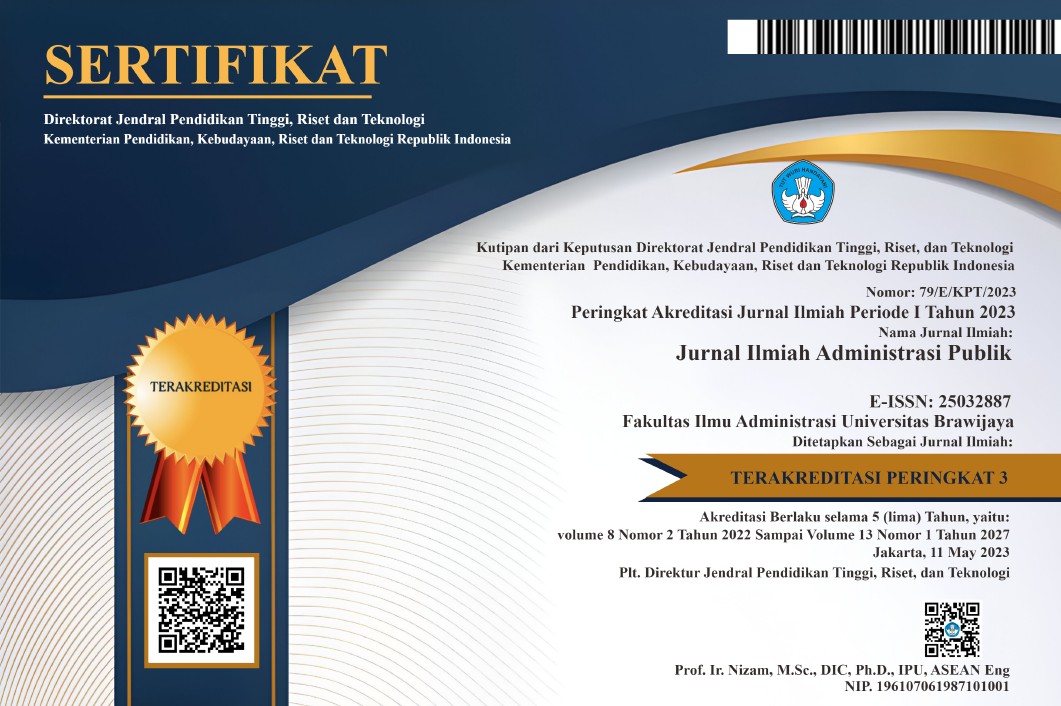Desentralisasi, Tata Kelola Pemerintahan, dan Kemiskinan di Negara-Negara Berkembang
DOI:
https://doi.org/10.21776/ub.jiap.2015.001.01.3Keywords:
decentralisation, governance, poverty, developing countriesAbstract
Theoretical arguments of the link between decentralisation, governance and poverty reduction are merit, but the implementation of decentralisation often fails to reduce poverty. This paper examines why decentralisation works and does not work to reduce poverty in developing countries. It shows that decentralisation will benefit for poverty alleviation if exist local political competition, community participation, and capacity of local government.
References
Bardhan. P. & Mokherjee, DP. (2006). Decentralization and local governance in developing countries: A comparative perspective. Boston: MIT Press.
Bardhan, P. & Mokherjee, DP. (2005). Decentralizing anti- poverty program delivery in developing countries, Working Paper. University of California, Berkeley
Burki, S., Perry, G., and Dillinger, W. (1999). Beyond the Center: Decentralizing the State. Washington, D.C.: World Bank
Faquet, J. (2014). Decentralisation and social welfare in Latin America. LSE Working Paper.
Grindle, MS. (2007). Going local: Decentralization, democratization, and the promise of good governance. New jersey: Princeton University Press.
Oates, Wallace (1972): Fiscal federalism, New York: Harcourt Brace Jovanovich Publishing.
Prud'homme, R. (1995). The dangers of decentralization. World Bank Research Observer, 2(10):201{220.
Putnam, R. (2003). Making democracy work: Civic tradition in modern Italy. New Jersey: Princeton.
Tiebout, CM. (1956). A pure theory of local. Journal of Political Economy, 64 (1): pp. 416-424.
Downloads
Published
Issue
Section
License
If your paper is accepted, the author identified as the formal corresponding author for the paper will receive an email prompting them to login into Author Services; where via the JIAP Author Licensing Service they will be able to complete the license agreement on behalf of all authors on the paper.














